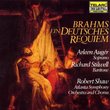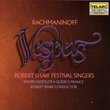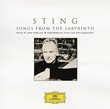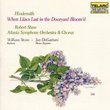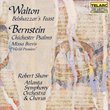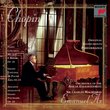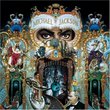| All Artists: Giuseppe Verdi, Robert Shaw, Diane Curry, Atlanta Symphony Orchestra & Chorus, Susan Dunn, Jerry Hadley, Paul Plishka Title: Verdi: Requiem & Operatic Choruses Members Wishing: 0 Total Copies: 1 Label: Telarc Release Date: 10/25/1990 Genre: Classical Styles: Opera & Classical Vocal, Historical Periods, Early Music, Modern, 20th, & 21st Century, Symphonies Number of Discs: 2 SwapaCD Credits: 2 UPC: 089408015229 |
Search - Giuseppe Verdi, Robert Shaw, Diane Curry :: Verdi: Requiem & Operatic Choruses
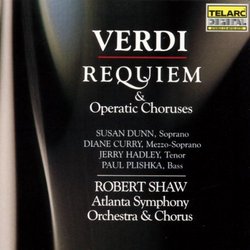 | Giuseppe Verdi, Robert Shaw, Diane Curry Verdi: Requiem & Operatic Choruses Genre: Classical
Robert Shaw learned from Arturo Toscanini, and in his stupendous 1987 recording for Telarc he managed to surpass the master on some points. He is unerring in his pacing and staging of climaxes, and draws phrasing and dynam... more » ![header=[] body=[This CD is available to be requested as disc only.]](/images/attributes/disc.png?v=15401716) ![header=[] body=[This CD is unavailable to be requested with the disc and back insert at this time.]](/images/attributes/greyed_disc_back.png?v=15401716) ![header=[] body=[This CD is available to be requested with the disc and front insert.]](/images/attributes/disc_front.png?v=15401716) ![header=[] body=[This CD is unavailable to be requested with the disc, front and back inserts at this time.]](/images/attributes/greyed_disc_front_back.png?v=15401716) |
Larger Image |
CD DetailsSynopsis
Amazon.com Robert Shaw learned from Arturo Toscanini, and in his stupendous 1987 recording for Telarc he managed to surpass the master on some points. He is unerring in his pacing and staging of climaxes, and draws phrasing and dynamics from the chorus that other conductors can only dream of. Points are made with exhilarating effect throughout the account: never has the bass drum in the Dies irae been as splendidly hammered as here, and the whooping brass in the Tuba mirum is breathtaking. The all-American solo quartet sounds a bit driven, especially the light-voiced Susan Dunn and Jerry Hadley, but their contribution is a strong one nonetheless. --Ted Libbey Similarly Requested CDs
|
CD ReviewsWell worth dying for! quia-nihil-sum | Inverness,Scotland. | 06/18/2000 (5 out of 5 stars) "For me this has always been the benchmark recording of Verdi's immortal setting of the Requiem mass,against which I have judged all others that have arrived to challenge it in the 13 years since it was first issued.However,not one has even come close to dislodging it from that lofty pinnacle upon which it has dwelt in splendid isolation for so long now. It is the finest memorial that the late great Robert Shaw could possibly have and it just goes to show what a wonderful conductor and choir-master the world has lost in him.The breathless anticipatory hush before the first pianissimo chords of the introit is a unique feature of this masterpiece,and the ASO manage this so well that we almost feel the music in our subconscious before actually picking anything up with our ears!A word of warning though:you will be tempted to crank up the volume on your amplifier during this bit,and the lovely Kyrie that follows, but resist the temptation,because the "Dies irae" which ensues with it's astonishing explosive detonations on the bass drum will not only damage your speakers,it may even cause structural damage to your house!So once the initial storms have died away,and you have rounded up any pets that were panicked into a stampede,you can settle down to some truly glorious music-making.The splendid Tuba mirum really shows just how wide-ranging the Telarc recording is,and I would dare to bet that Gabriel himself will be asking the members of the brass section for some pointers on how to go about sounding that last trumpet!The magisterial bass Paul Plishka brings great gravitas and due fearfulness to the "Mors stupebit" and the mezzo-soprano Diane Curry opens the Judgement book with a matching sense of awful foreboding,as is evident in her peerless performance.Again the brass distinguish themselves around the phrase "Judex ergo cum sedebit",and indeed the orchestral playing throughout this recording is hardly short of miraculous.Surely the ladies and gentlemen of the ASO&Chorus were possessed by angels when they committed this work to disc.Certainly an angel in soprano form is Ms Susan Dunn.Her voice is one of heavenly purity,without a trace of strain or artifice in her topline.Just listen to her in the "Quid sum miser..." here and in the exposed,lonely "Salva me",that could be called the eye of the storm that is the "Rex tremendae".Quite astonishing how she sustains that often unforgiving phrase,and I count it as one of my most favourite moments in all musicWhat a balm and benediction is the gorgeous "Recordare",coming as it does immediately after we have been so deliciously battered and bruised by the apocalyptic forces of the "Salva me fons pietatis".Ms Dunn and Ms Curry mingle and weave their voices with consumate skill,and this passage must count as one of the greatest things that Verdi produced in his entire career.The tenor Jerry Hadley eschews the kind of histrionics that someone like Pavarotti would bring to the "Ingemisco",and within the scale and tone of the reading his unfussy approach works really well.In fact he makes a damn fine sheep(!) in the "Inter oves locum praesta" and with his forceful "Statuens in parte dextra",I'm sure God will be scurrying to clear some space for him on that eponymous right hand!Paul Plishka strides back into centre stage with his "Confutatis maledictus" and what a marvellous contrast between the initial turmoil of the damned been confounded and charred,and the supplicatory serenity of his "Voca me cum benedictus" and subsequent entreaty for pity.The "Lacrimosa" re-unites all four soloists and special mention once more for Ms Dunn's ethereal "Huic ergo parce".Magical. Also,how about that glorious sonority of the bass voices in "Pie Jesu Domine".I'm sure my windows rattle under the sympathetic resonance generated here!The "Offertory" is a veritable treasure chest of aural jewels.Just witness the magical combination of the string section with our soprano around the phrase "Sed signifier sanctus Michael". Then there is possibly my favourite piece in the entire mass -the "Hostias".It's a deceptively simple long-breathed theme,which is initiated by the tenor and then developed by the other voices.I can't really explain why but it's one of those tunes that penetrate deep into your psyche and has a habit of bobbing to the surface when you least expect it.It shares this quality with Handel's, "I know that my Redeemer liveth", which always seems to ambush me when I'm out walking in the hills."Hostias",on the other hand sneaks up on me while I,m in the bathtub,and though my family might violently disagree,I think it comes across very well in that acoustic!The choir cover themselves in glory once more with the storming "Sanctus" and thus we come to the end of the first disc.Now it's at this point that I must register a complaint-but don't worry,it's nothing to do with the music-it concerns the way this tremendous performance is awkwardly spread over 2CDS.Now,as much as I love the filler item of the operatic choruses(chorii?);especially "Va pensiero" and "Gloria all'Egitto",I would willingly forego them in order that the Requiem might be confined to a single disc,and then I wouldn't have my carefully nurtured reverie dissipated by having to laboriously change the discs over.By my reckoning the timing would work out at just over 84 minutes:surely thats not outside the capacity of a single CD-is it? Oh, and while I'm in moan-mode Telarc;could you address the problem of the missing text from the booklet i.e. the words "Fac eas, Domine,de morte transire ad vitam" (make them,Lord,cross from death to life).If you are following the libretto as you listen,it's most disconcerting to feel you have lost the plot all of a sudden.I remember the first time it happened to me,I absurdly checked the floor around my feet, as if that particular line had somehow fallen of the page!Anyway,that's my griping over with and I'll come (reluctantly!) to the second disc which contains the severed "Agnus Dei","Communion" and concluding "Libera me". The "Agnus Dei" is another gorgeous duet for our female soloists,and with the "Communion" seems to pave the way for an ending full of sweetness and light,but the "Libera me" with it's anxious fearful setting and the re-visitation of the dreadful "Dies irae" remind us that unlike say Faure,Verdi did not envisage death as an untroubled,serene passing over,but rather as a tortured uncertain transistion with eternal damnation a very real possibility.So,if you want a Requiem to provide the ultimate in late-night balm and benediction,opt for Faure,Victoria and Campra,but if you are up for an emotional roller-coaster of a death-mass, choose Verdi and remember just as in his famous aria,"Nessun Dorma",while this brilliant CD is playing,"NONE SHALL SLEEP!"-Least of all you!" Brings back memories Bob Zeidler | Charlton, MA United States | 05/04/2001 (5 out of 5 stars) "How could I possibly top the splendid review by Dominic Grant below? And his later graceful apology for a mere typo? Well, I just cannot. But I'd like to share my own thoughts, anyway. With all the flap over the recently released Gergiev recording of the Verdi Requiem on Philips, with its unfortunate choice of Andrea Bocelli - a pop singer masquerading as an operatic singer - as tenor soloist, it is once again - and always - a pleasure to turn to a truly definitive recorded performance, that of Robert Shaw. As points of reference whenever I turn to this performance, I always have in mind earlier recordings by Giulini and Solti, among others. (I include a truly visceral one by Karel Ancerl and the Czech Philharmonic, featuring Galina Vishnevskaya with a "Libera me" to die for, and the type of Slavic excitement that Gergiev tries for but fails.) Verdi's Requiem is, without doubt, the most operatic of such works as have become part of the liturgical canon. But it doesn't necessarily follow from this that the best recordings are the ones which utilize operatic superstars. Were that the case, Solti's recording, with Joan Sutherland, Marilyn Horne, Luciano Pavarotti and Martti Talvela, would be unchallenged (particularly when one throws in the Vienna Philharmonic, as well as the typically excellent mid-60's sound that Decca was so good at). But, true to form, Solti just couldn't find the proper sensitivity and balance to make his performance the definitive one. Shaw does what Solti could not do. In a work that requires efforts of equal quality by orchestra, soloists and chorus, there simply is no better chorus than a Shaw chorus. Shaw's four soloists, while perhaps not of the marquee value of the ones on the Solti recording, are outstanding. A previous customer reviewer certainly got it right when he said that Susan Dunn was a Verdi soprano to be reckoned with. And Diane Curry, Jerry Hadley and Paul Plishka are equally excellent. (Plishka, as I mention later, is one of my "memories.") Moreover, in a work which demands that the cataclysms of the Dies Irae and the tenderly supplicant closing pages of the Libera me be captured in proper proportions, none are better than Telarc at this challenge. The personal friendship between Robert Shaw and the Cleveland-based Telarc team of Bob Woods and Jack Renner goes back to the days when Shaw was George Szell's assistant at the Cleveland Orchestra. Thus it was, when Woods and Renner introduced the "all-digital" Telarc label in the late 70's, that they turned to Shaw and his Atlantans as an enduring source for the recording of choral masterpieces. With the passing of Shaw some two years ago, it is now time that someone sum up his recorded legacy, which, under the aegis of Telarc, exceeds three dozen recordings. In my humble opinion, he will be remembered for a long, long time for three works that Telarc recorded with his forces: The Bach B Minor Mass, the Brahms German Requiem, and this Verdi Requiem. Oh! The memories! For several years, at a time when Shaw's Atlanta forces were as good as they were to get, in the early 80's, I was fortunate to live in the Atlanta area, and to attend many of his concerts. And, in the fall of 1965, when Paul Plishka had just won a "young artist" award that was to lead to his Metropolitan Opera career, I was fortunate to have been a member of an amateur chorus which performed this work with a semi-pro orchestra and four young soloists. The names of the other three soloists were long ago relegated to the dustbin of history. But the bass soloist at that 1965 performance was none other than Paul Plishka. He's still banging the boards at the Met. One durable dude! Once again, kudos to Mr. Grant for his superb review, and for his reminding me that I had some "unfinished business" to attend to. Bob Zeidler" The best recording of this popular work David A. Albro | 02/26/1999 (5 out of 5 stars) "Although there are hundreds of recordings of this piece, none comes close to the vocal clarity and warmth, and the masterful pacing, of this one. Shaw is at top form here, with a remarkably incisive dramatic reading, and the soloists are top-notch as well. There's no better recording of this best-in-the-world chorus, and Shaw even manages to get some vivid playing out of the pre-Levi ASO. No other recording captures the terror, warmth, or effusive "humanity" of this work at such a sustained and convincing a level. Shaw's work with Toscanini is clearly evident here, and the unrivaled sound of the Atlanta chorus is unbelievably rich."
|

 Track Listings (4) - Disc #1
Track Listings (4) - Disc #1